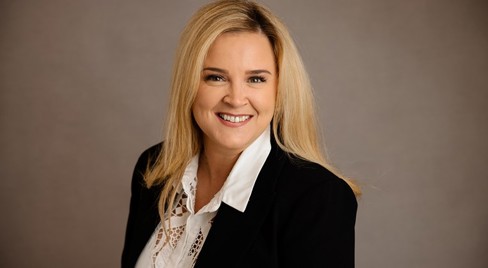With the R&D Tax Credits scheme, companies can fund their groundbreaking projects by claiming back their R&D spending. However, HMRC maintains stringent criteria for what qualifies as research and development, which may prove difficult to navigate without expert assistance.
Any UK company can benefit from R&D tax credits if they take risks and push the boundaries to innovate. From developing a new or improved product, service, or process to attempting to solve an unsolved problem, your project could qualify, regardless of whether the project succeeds or fails.
The key requirements for a qualifying R&D project are:
- Seeking to develop an advance in science or technology beyond the existing state of the art
- Seeking to achieve this advance through the resolution of scientific or technological uncertainty
The first is relatively easy to define, with many companies seeking to improve upon the baseline. You must remember that your advance must be an improvement on the wider field of science or technology and not just for your company (i.e., new knowledge or capabilities across the field, beyond what is in the public domain).
However, many companies come unstuck with the second requirement, as often improvements can be discovered with routine or standard development. Knowing what a valid uncertainty is can make all the difference in your project qualifying.
With inexperienced claimants in particular feeling overwhelmed, it is often advantageous to speak with R&D tax credit experts before starting your claim. R&D tax experts guide you on your project’s eligibility so you feel confident in achieving success through R&D tax reliefs.
Defining Scientific or Technological Uncertainty
According to government guidelines:
"Scientific or technological uncertainty exists when knowledge of whether something is scientifically possible or technologically feasible, or how to achieve it in practice, is not readily available or deducible by a competent professional working in the field.”
An important point to note is that the uncertainty must be directly related to science or technology. Business, legal or commercial challenges cannot qualify as they are not technological or scientific uncertainties, no matter how crucial they are to the project or the company.
For example, not having the correct skillset in your staff and struggling to hire the right personnel is not a valid uncertainty for R&D tax credits. Similarly, not being sure if your product will be commercially viable or if your customers will like it is also not scientific or technological in nature, therefore will not qualify either.
Additionally, the general complexities of a project may not all be uncertainties; for example, many software projects need to consider scaling and security. This adds to the difficulty of the project, but it is usually not uncertain in terms of feasibility.
When assessing if you have a valid R&D tax credit claim, ask yourself if your project’s outcomes were truly uncertain to your team. Can your competitors easily replicate what has been achieved? Is it a solution that would be clear to them?
This means that if your R&D project has solved a problem in science or technology that another team in the sector could easily achieve, then a valid R&D tax credit claim is unlikely.
You likely have a valid uncertainty if you can provide multiple examples of experimentation, iteration and trial and error; the more fails, the better!
Solutions Not in the Public Domain
For an uncertainty to be eligible, the knowledge of achieving the advance must not be readily deducible. In some cases, competitors may have already worked out a similar solution to your problem, but you don’t know how they’ve done it.
If a solution exists, but is not in the public domain (i.e., a trade secret or proprietary information), your efforts to replicate its results will still be eligible.
For example:
Company A is looking to develop a process that increases the tensile strength of its packaging material. It is aware that a competitor has achieved these results, having purchased the item and tested it themselves. Even after testing, Company A cannot identify how this competitor achieved the results and, of course, cannot ask their competitors for this information. Therefore, Company A needed to complete their own research and development to achieve these results.
What’s a Competent Professional?
Your projects need to rest on the expertise of a competent professional to qualify. HMRC won’t accept the word of just anyone that the work you did was genuinely uncertain; a project undertaken by a junior staff member could easily be confused with R&D if the staff member does not have enough experience to identify genuine uncertainties.
Someone on your team should be able to:
- Judge what is or is not an advance on the current state of what is known and understood
- Identify R&D activities seeking an advance
- State where the R&D activities begin and end
These key staff or contractors can demonstrate how a project is not easily worked out based on your field's state-of-the-art. They should have worked directly on the project and would usually have helped prepare the information required to make a claim.
System Uncertainty
Your uncertainty doesn’t always need to be related to the core feasibility of each element of your project. System uncertainty results from the complexity of combining different elements into a system instead of from the design and development of each component.
For example:
Company B is building robotic vehicles to move around pieces in a large manufacturing plant. The vehicle is a known component, as is the existing machinery in the plant. However, the company is uncertain if and how the vehicle can be integrated into the plant. This is unknown due to the safety constraints and the difficulty of interfacing the variety of existing machinery with a single vehicle that needs to work across all the machines.
In this instance, the components (the existing machines and the vehicle) are understood, but the uncertainty comes from combining them.
In this example, HMRC would expect to see specific examples of the difficulties faced when interfacing the existing machines with the vehicle.
Submitting Your Information to HMRC
As part of an R&D tax relief claim, you should compile a high-quality technical report. This is now part of the requirements for making a claim, as companies need to submit an Additional Information Form (AIF) before they can make their claim, which includes project information like your uncertainties and your advance.
Accurately and concisely explaining the scientific and/or technical hurdles you encountered is crucial and could mean the difference between success and failure.
Many companies choose to send more information than is required with their submission, including a full technical report and costing information. Tax Cloud helps companies prepare all these details and submit them with ease. Our experts review your project details from top to bottom to ensure that your project meets HMRC’s standards and that your costs are qualifying. We even submit your claim on your behalf.
Making Your Claim
Our friendly team of R&D professionals is on hand to guide you throughout the process. Our expertise allows us to expertly guide clients through tax relief processes - avoiding common mistakes along the way. We are proud to boast an exemplary success rate; however, we also commit to handling any HMRC compliance check on your behalf, should it arise.
Take advantage of Tax Cloud's seamless online system to file your R&D tax credit claim. With access at all times, you can easily take control of your claim. Our cloud-based platform provides an easy step-by-step process from start to finish, with our experienced team available every step of the way for peace of mind.
If you have questions, contact us—we’re always happy to talk R&D tax credits!







